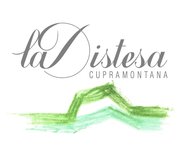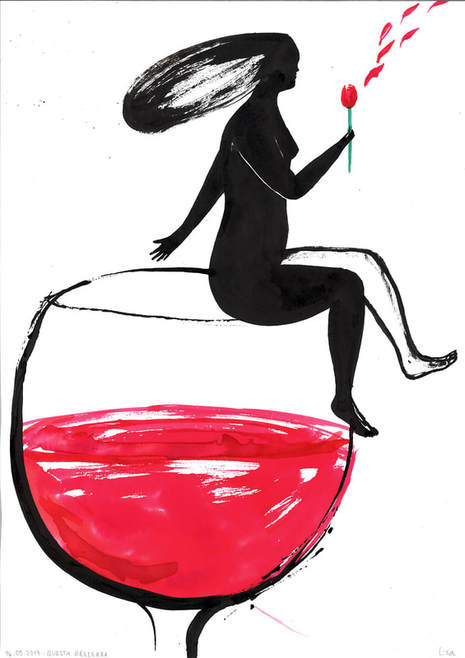The Eighties and Nineties
|
After Domenico Dottori's death in 1973, the land and vineyards were passed by succession to his son Nazareno "Neno" Dottori, who together with his wife Daniela decided to keep the properties of Cupramontana despite living abroad.
Corrado's parents, together with his grandmother Leonilde Rossi who was the owner of the land, entrusted the management of the San Michele farm to Pietro and Elena Branchesi, who were until then sharecroppers in the nearby Follonica district. In 1980 and 1983 two new vineyard plots were planted and a small bulk wine trade was started in Milan. At the time the Verdicchio production crisis was in full swing: the market was flooded with light and industrially processed wines, almost always bottled in amphorae, which conditioned the image of the area for many years. The wine of Pietro however was a handmade Verdicchio – of a vigneron - vinified in large oak barrels with a few days of maceration on the skins. A peasant wine in the manner of Veronelli. In the meantime, in the late eighties and early nineties, something changed: thanks to Amplio Bucci in Montecarotto with Villa Bucci, Lucio Canestrari in Staffolo with Gaiospino, the Bonci family and the Colonnara cooperative respectively with San Michele and Cuprese, important Verdicchio wines were back on the market, capable of expressing terroir, and of defying time. When Pietro went into retirement, Corrado had already gained a passion for wine and gave his parents a hand in the first "hobby" bottling of Pietro's wine. "San Michele" of La Distesa was born with this 1996 vintage, and in 1997 a VAT number opened under the name "Azienda Agricola La Distesa di Dottori Corrado". |
The Journey to Cupramontana
“It was in November that I decided to become a winemaker. I was on top of an olive tree in the midst of a sparkling light, like you see only in autumn. It was a moment. While picking olives from a hundred-year-old tree, of the variety called carbonella, suddenly, I found myself reflecting seriously about the possibility of radically changing my life.
No more jacket and tie, no more daily ‘yes sirs’ to bleak bank managers, no more financial transactions having questionable morals, no more cold, empty, anonymous relationships, no more of a decadent and decayed Milan of which I had now vehemently and desperately absorbed every last vital jolt.
No. What I need is an expanse of hills, wide spaces to breathe, a white dog. Pure freedom to imagine, plan, build. Seeds to be thrown into the wind, trees to be planted, to watch grow, care for. What I need are tangible, recognizable, concrete signs of my rapid passing through this life, on this world, on this earth.
And so, just as I make the natural gesture of clearing the branches to make the olives fall onto the underlying nets, everything seems clear to me, for the first time. My passion for wine, the love all too often kept silent for my land, the well-hidden yet ever-present dream of a life that proceeds according to different rules.
At that precise moment I completely ignore the ‘how’. But perfectly clear to me is the ‘why’. As if all that infinite lack of meaning that accompanied my adolescence and my youth had suddenly vanished. As if all of that feeling of emptiness that seemed to dominate a large part of my life had been swept away by the expanse of hills before my eyes, sparkling with autumn light, swept by the cold north wind.
The air stings my face. I sit on the cold ground looking at the vineyards, now almost bereft of leaves. I breathe. At night, in bed, the mind travels to what will be a new life.
For New Years 1999 Valeria and I decide to leave for France, alone. For the first time, we leave our friends to their destiny. We had our own to chase.
The following evening we have dinner at a tiny restaurant in the beginning of the old city of Cannes. I look at Valeria and tell her everything. A cottage for us. A vineyard. A dog. A farmhouse. Hard work. But for us. A different idea for the future. A leap into the dark together. All or nothing. Just as I like it.
She takes my hands in hers and smilingly says, ‘Yes.’”
No more jacket and tie, no more daily ‘yes sirs’ to bleak bank managers, no more financial transactions having questionable morals, no more cold, empty, anonymous relationships, no more of a decadent and decayed Milan of which I had now vehemently and desperately absorbed every last vital jolt.
No. What I need is an expanse of hills, wide spaces to breathe, a white dog. Pure freedom to imagine, plan, build. Seeds to be thrown into the wind, trees to be planted, to watch grow, care for. What I need are tangible, recognizable, concrete signs of my rapid passing through this life, on this world, on this earth.
And so, just as I make the natural gesture of clearing the branches to make the olives fall onto the underlying nets, everything seems clear to me, for the first time. My passion for wine, the love all too often kept silent for my land, the well-hidden yet ever-present dream of a life that proceeds according to different rules.
At that precise moment I completely ignore the ‘how’. But perfectly clear to me is the ‘why’. As if all that infinite lack of meaning that accompanied my adolescence and my youth had suddenly vanished. As if all of that feeling of emptiness that seemed to dominate a large part of my life had been swept away by the expanse of hills before my eyes, sparkling with autumn light, swept by the cold north wind.
The air stings my face. I sit on the cold ground looking at the vineyards, now almost bereft of leaves. I breathe. At night, in bed, the mind travels to what will be a new life.
For New Years 1999 Valeria and I decide to leave for France, alone. For the first time, we leave our friends to their destiny. We had our own to chase.
The following evening we have dinner at a tiny restaurant in the beginning of the old city of Cannes. I look at Valeria and tell her everything. A cottage for us. A vineyard. A dog. A farmhouse. Hard work. But for us. A different idea for the future. A leap into the dark together. All or nothing. Just as I like it.
She takes my hands in hers and smilingly says, ‘Yes.’”

